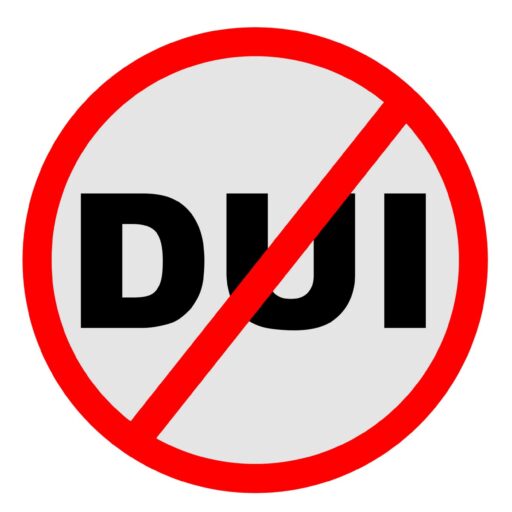When it comes to the subject of driving under the influence (DUI), the immediate thought typically conjures images of a person behind the wheel, intoxicated, and potentially endangering themselves and others. However, the legal landscape surrounding DUI offenses is far more intricate than it may initially appear. One area that often raises eyebrows is the question: Can you be charged with a DUI if you’re not actually driving? This inquiry opens the door to a plethora of legal contingencies, nuanced interpretations, and case-specific scenarios. Let’s delve into this thought-provoking subject.
To fully grasp the legal implications, we must first understand what constitutes driving under the influence. Generally, DUI laws are enacted to deter impaired individuals from operating motor vehicles. Most jurisdictions define DUI broadly to include not just driving but also being in control of the vehicle. This can raise complicated questions about what it means to be “in control.”
At its core, DUI laws in many states have been crafted to address situations where an individual might pose a risk, even if they are not actively driving. For instance, being found in a parked vehicle, particularly with the engine running, can lead to a DUI charge. The rationale behind this is that the individual still has the potential to operate the vehicle, thereby posing a threat to public safety.
Some key factors taken into account by law enforcement and courts include:
- Intoxication Levels: A key element is whether a person’s blood alcohol content (BAC) exceeds the legal limit, which is typically 0.08% in most states. If you are found in a non-driving scenario but exhibit signs of significant impairment, law enforcement may pursue DUI charges.
- Location of the Vehicle: If you are found in a parked car, especially in a public area, it raises suspicions. In certain instances, being in a vehicle on private property—with or without the engine running—may not lead to charges, but there are exceptions.
- Intent to Drive: Law enforcement might assess whether there’s evidence that indicates you had intentions to drive. Even if you weren’t driving at that moment, if it appears you intended to, this could lead to charges.
- Vehicle Accessibility: If you are seated in the driver’s seat and have access to the keys, this can be a pivotal factor. Courts have often ruled that merely being in proximity to a vehicle qualifies as being ‘in control’ under DUI statutes.
Another key aspect of DUI law is how different states interpret these statutes. States may have idiosyncratic approaches to DUI charges when it comes to non-driving scenarios. Some states have stricter definitions and more aggressive enforcement, while others might be more lenient. For example, a state with “actual physical control” statutes might impose DUI penalties if an individual is found intoxicated in a parked car with the engine off but sitting in the driver’s seat. In contrast, other jurisdictions might examine the circumstances surrounding the situation more carefully before charging.
This brings us to some specific scenarios to illustrate the complexities at play:
- Parked on the Side of the Road: If you’re parked but intoxicated on a busy street, law enforcement can justify a DUI charge, especially if the vehicle is accessible and running.
- Sitting in a Car at a Rest Stop: If you choose to rest while intoxicated in a rest area, you might not face charges, particularly if the vehicle is turned off and you are not near anything that indicates the intention to drive.
- Sleeping in the Backseat: If you’ve chosen to sleep it off in the backseat while a sober friend is in the driver’s seat, this may work in your favor should authorities arrive.
It’s imperative to consider the consequences of being charged with a DUI, even if you were not actively driving your vehicle. A DUI conviction can incur substantial penalties, such as fines, license suspension, and even imprisonment. Furthermore, the experience can leave lasting repercussions on your insurance, employment prospects, and personal life. Navigating the aftermath of a DUI charge can be labyrinthine and fraught with anxiety, making it essential to consult legal counsel if you find yourself embroiled in such a situation.
Furthermore, advocacy and educational resources are available for those looking to navigate the murky waters of DUI laws and public safety. Organizations dedicated to educating the public about the dangers of drunk driving also emphasize the importance of responsible behavior, urging individuals to think critically about their decisions before getting behind the wheel—or even sitting in a parked car. They advocate for alternative transportation options and promote community awareness to prevent impaired driving.
As a legal perspective, being aware of the distinct nuances associated with DUI laws can significantly influence the outcome of a case. The detailed examination of your actions, your surroundings, and the intent behind your presence in the vehicle can prove pivotal. Therefore, it’s no longer just about whether you were behind the wheel; it’s an intricate dance of context and evidence.
In summary, the question, “Can you get a DUI if you’re not driving?” is not only valid but also vital to understanding our legal framework. As laws evolve and public attitudes shift, staying informed about these statutes—and their implications—becomes increasingly paramount. Awareness about DUI laws related to non-driving scenarios will empower individuals to make wiser choices and potentially avoid the life-altering consequences of a DUI charge.
